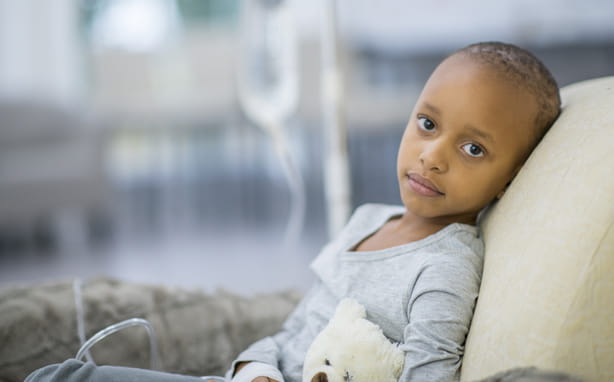The 340B Drug Pricing Program was created by Congress to help certain categories of health care providers, referred to as covered entities, purchase covered outpatient drugs at a reduced price. Manufacturers that participate in the 340B program may only sell their covered outpatient drugs to covered entities at or below a ceiling price. Covered outpatient drugs include prescription drugs, biologics (but not vaccines), and over-the-counter drugs prescribed by a physician. Children's hospitals and disproportionate share (DSH) hospitals are among the categories of health care providers eligible to participate in the program. The first children's hospital joined the program in 2009. The 340B program is administered by the Health Resources and Services Administration (HRSA).
How the 340B Program Works
Under the 340B program, the HHS Secretary first enters into a pharmaceutical pricing agreement with a drug manufacturer to define the ceiling price for that manufacturer's covered outpatient drugs. The manufacturer may then only sell its covered outpatient drugs to covered entities at the ceiling price or at a lower price. The ceiling price is the lower of the best price available from the manufacturer or the average manufacturer price for a covered outpatient drug reduced by a statutory discount. Generally, the discount for brand name drugs is 23.1%, 17.1% for brand name pediatric drugs, and 13% for generic and over-the-counter drugs.
Covered entities may provide covered outpatient drugs procured under the 340B program only to its patients. An individual is a patient if (1) the covered entity has established a relationship with the individual, such that the covered entity maintains records of the individual's health care, (2) the individual receives health care services from a health care professional who is either employed by the covered entity or provides health care under contractual or other arrangements such that responsibility for the care provided remains with the covered entity; and (3) the individual receives a health care service or range of services from the covered entity which is consistent with the service or range of services for which grant funding has been provided. HRSA has clarified that an individual is not a patient if the only health care service received is the dispensing of a drug.
A covered entity may distribute covered outpatient drugs purchased under the 340B Program through an in-house pharmacy or through other contracted pharmacies.
Eligibility for the 340B Program
The definition of a covered entity includes a number of different health care provider categories, including children’s and DSH hospitals. A children's hospital or a DSH hospital is eligible to participate in the 340B Program if it meets the following conditions:
- (A) Is owned or operated by a state or local government, (B) is a public or private nonprofit corporation which is formally granted governmental powers by a state or local government, or (C) is a private nonprofit hospital that has a contract with a state or local government to provide health care services to low-income individuals not eligible for Medicaid or Medicare
- Has a disproportionate share adjustment percentage greater than 11.75%
- Does not obtain covered outpatient drugs through a group purchasing organization or other group purchasing arrangement.
- Eligible health care providers must register with HRSA to participate in the 340B Program. A registered covered entity must annually recertify its eligibility to remain in the program. Covered entities must also maintain records documenting compliance with the program and cooperate with audits by the federal government and pharmaceutical manufacturers.
Additional Eligibility Requirements for Children's Hospitals
- Prior to entry into the 340B program, a children's hospital must provide a Medicare provider number identifying the hospital as a "children's hospital" (i.e., a hospital with a 3300 series Medicare provider number).
- In addition to having a 3300 series Medicare provider identification number, children's hospitals must have a disproportionate share adjustment percentage greater than 11.75%.
- If a children's hospital does not receive Medicare disproportionate share payment adjustments, the hospital can show compliance by providing an independent verification that if the disproportionate share adjustment percentage were calculated, it would be greater than 11.75%. One way to demonstrate this is to have a disproportionate patient percentage (DPP) greater than a threshold amount that is equal to a disproportionate share adjustment percentage greater than 11.75%.
- If a hospital does not submit a Medicare cost report, the hospital can confirm eligibility through the findings of an independent auditor and certification by the hospital as to the appropriate value of the hospital's disproportionate share adjustment percentage, as based on the DPP.
340B Prime Vendor Program
The 340B program also has a prime vendor program where covered entities may use prime vendors to purchase covered outpatient drugs. The current prime vendor is Apexus. Covered entities do not need to participate in the prime vendor program to qualify for the 340B program.


